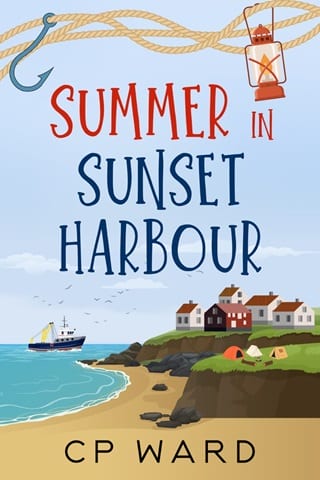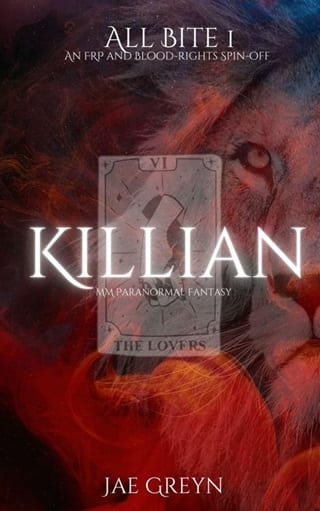10. Stops and Starts
10
Stops and Starts
In the morning, having shared a second bottle of wine, it was Josie who was the worse for wear, while Hilda bounced around as though she’d spent the evening drinking carrot juice. As Josie stumbled into and out of the shower, Hilda made them both a large fried breakfast, and then together they headed over to the campsite.
‘You’ll need to start thinking about logistics soon,’ Hilda said, as they walked down the lane, a light breeze blowing over the top of the hedge, a warm sun beaming out of the sky. ‘Listing the campsite in newspapers, on the internet, that kind of thing. You’ll need shop stock, staff. You can probably get away with a few student workers for most of it. You might need some red tape seen to, but I have a mate on the council.’
Josie glanced at her friend. ‘I haven’t even cut the grass back yet.’
‘When you’re driving your car, do you look at the road right in front of you, or do you look further ahead, to see what’s coming?’
‘I don’t have a car.’
Hilda chuckled. ‘Oh yes, I forgot. Don’t worry, once the money starts rolling in, you can buy all the cars you want.’
‘I’d be happy to have my old Volvo back.’
‘You have to look to the future, my wonder. What about a new Volvo?’
‘I suppose I could go for a new used Volvo.’
‘See? Now you’re talking. Ah, here we are.’
The campsite looked the same as yesterday. Josie peered into the gloom under the trees, wondering whether her tree-living friends had been up to no good during the night. Everything looked as it should be, however: wild, untended, ruined, an impossibility staring Josie in the face. She set down the bag she was carrying with a sigh, wondering if it was too soon to suggest they break for the flasks of coffee they had brought with them, but Hilda clapped her hands together.
‘Right, let’s get to work,’ she said. ‘I’ll start pruning those bushes by the entrance. It looks like you have some privet in there, and a bit of blue gem and veronica.’ She chuckled. ‘Nat must have been quite the garden centre stalwart back in his day.’
‘I assume you’re talking about plants?’
‘Yes. There are some lovely shrubs in here. They’re just a bit overgrown, that’s all. Nothing a little hard pruning won’t fix.’
Josie left Hilda by the entrance and walked down to the barn. At the sight of the door standing just open enough to allow someone entry, however, her hackles began to rise. She clenched her fists, glaring at the door as though to splinter it with her gaze.
‘If you’ve been in there … I’ll—’
She peered into the gloom, then stepped inside. She had taken no more than a couple of paces, though, before she stopped dead in her tracks. One of the old table tennis tables, dusted down, had been carried out into the central corridor. Where a net had rotted away, now pieces of plywood made a crude partition.
Something was standing on the table near the net, a small plastic basket. Josie approached cautiously, fearing it might be full of more frogs, but to her surprise it was just four tatty table tennis paddles and a handful of balls. All of them looked stained and water damaged as though they’d been found buried in the undergrowth.
‘Oh!’ came a voice from behind her, and Josie gasped as she spun round. It was only Hilda, though, standing just inside the barn door with a pair of pruning clippers in her hand. ‘Did you set it up already? Why don’t we have a quick game?’
‘Not me,’ Josie said, but before she could launch into some diatribe that it had to be the squatters taking advantage of things, Hilda had hopped over to the basket and selected a paddle.
‘Come on, humour an old woman,’ she said, swishing the paddle through the air. ‘I think I can just about get it over the net.’
‘If you insist,’ Josie said with a smile. ‘I used to play a little with Tiffany when she was younger. I’ll go easy on you.’
‘You’re such a dear.’
Josie tapped down a couple of weak serves and Hilda did her best to hack them back over the makeshift net. After a few minutes of gentle tapping back and forth, Hilda said, ‘Right then, shall we have a game?’ She grinned. ‘How about the loser buys lunch?’
‘Sure,’ Josie said. ‘I liked the look of that steakhouse down by the harbour.’
‘Oh, that place is great,’ Hilda said with a grin. ‘You’d have to sell another car to afford it, though. All the tourists these days are getting milked harder than Davey Blinchard’s flock come Wimbledon strawberries and fresh cream season.’
‘Luckily I won’t have to,’ Josie said. ‘Go on, I’ll let you serve.’
‘You’re so kind.’
Josie tapped the ball across the net and Hilda make an awkward show of grabbing it. As soon as she had it in hand, though, she turned her body, lowering her stance, and switched her grip on the paddle. When the ball came flashing back across the net, it dipped sharply and then swung away at such a tight angle that Josie nearly fell over in a vain attempt to even get near to it.
‘One zero,’ Hilda said, giving Josie a wink.
‘You’ve not gone and sharked me, have you?’ Josie said.
Hilda grinned and sent another serve whizzing past Josie’s desperate swipe. ‘The best bit of sharking since Uncle Phil broke out Lucille,’ Hilda said with a delighted chuckle. ‘British Under 16s girls champion, 1968. Might have played a bit more had there been any money in it. Come on, though, it’s been more than fifty years. I’ll tell you what, to make it a little fairer, no spin serves.’
‘If I sold my shoes, would I be able to buy us half a steak?’
‘I’d settle for a homemade sandwich.’
Josie grinned. ‘You’re on.’
It wasn’t a total walkover. Josie managed to win a couple of points, but Hilda was clearly taking it easy on her, and in the ‘more than fifty years since her junior British title’ she had lost a bit of mobility.
By the time Hilda had completed a three-games-to-zero whitewash, Josie had come up with another idea.
‘We could have a campsite tournament,’ she said. ‘Or maybe you could come in and offer a bit of coaching to the kids?’
Hilda gave her a mild smile. ‘We’ll have to see,’ she said. ‘But you’re starting to think the right way. Listen, I’m sorry to drop this on you, but I need to get back. Something’s come up.’
No phones had rung, neither had Hilda glanced at any schedules or planners. Still, she looked suddenly nervous, as though she had left the taps running or the oven on.
‘I’ll pop down again in the morning to see how you’re getting on,’ Hilda said.
‘What about dinner?’
Hilda gave Josie a hopeful look. ‘You’ll need a couple of days to plan your sandwich fillings, won’t you?’
Josie waved Hilda off as her friend climbed into her van and headed back up towards the road. Feeling suddenly lonely and craving company, she retrieved the radio Nat had given to her and got to work clearing out the undergrowth from around the cabins, cutting away the brambles and nettles with a scythe, the radio sitting on the ground behind her as she worked.
The work definitely wasn’t as enjoyable without Hilda around, but Josie took pride in each pathway she cleared of brambles, each cabin that emerged from the undergrowth. Using the keys from the reception to get inside, she found they were in better repair than they ought to be, a little dusty, a little overrun with spiderwebs, and a couple showing evidence of mice having taken up residence, but they were structurally sound, the water worked, and in many the electric also did.
She took a break for coffee. Then, feeling a little braver, she took the strimmer and headed for the clearing under the treehouses.
‘Don’t mind me,’ she said, setting her radio down on the ground below the treehouses. ‘I know you’re up there. I saw you’d had a game of table tennis earlier. Why don’t you come down and we’ll have a chat about things?’
No one answered her. She adjusted the radio on to a music channel since she wouldn’t be able to hear it anyway, then got to work with the strimmer, cutting back the long grass and brambles around the edge of the clearing, widening the space, opening up the dramatic, sweeping view of the cove and the headlands below. So spectacular in fact, that she forgot all about the people living in the trees until she swung around to find herself faced with a person literally hanging upside down, arms reaching for her radio.
She switched off the strimmer and set it down by the picnic table. ‘Get off that!’ she snapped, as the person, feet in some kind of rope brace, grabbed her radio and made a sharp cry to the others in the trees. As the rope tightened, pulling him back up, Josie ran over. Too late, the person had returned to the treehouse, stolen radio in hand.
‘That’s mine. You give that back!’ she shouted, thumping a hand against the tree trunk. Incensed, and ignoring any possible danger, she circled the tree, looking for a way up.
She had just found some old divots cut into the tree which offered possible hand and foot holds, when more movement caught her eye. She turned, just in time to see another figure jump down from a tree closer to the clearing’s edge, run to her strimmer, and kick it over the edge.
‘You—’
The figure made it back to the tree, grabbed a dangling rope and was hauled swiftly up before Josie could get a hold of him. As she looked up to see a foot disappear over the wooden railing of one of the walkways, she let out a howl of frustration.
‘I don’t know who you people are, but I’m not having this,’ she snapped.
She went to the clearing’s edge to look for her strimmer. The slope was steep but it couldn’t surely have fallen far. There was no sign of it on the grassy slope, however. She looked further down, and caught sight of it, far below, the heavy machine sliding and rolling as the slope steepened. It was heading for a section of the coast path which had been re-cut around a crumbling section of cliff. Surely the path would stop it, she thought, but as it reached the flatter section, it caught on something in the grass, made a dramatic, comical somersault, bounced right across the path and vanished over the cliff edge.
Josie looked up at the treehouses. ‘That’s it,’ she snapped. ‘You want a war … you’ve got one.’
 Fullepub
Fullepub 



